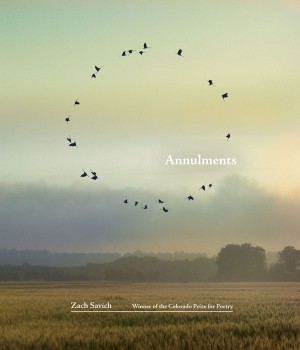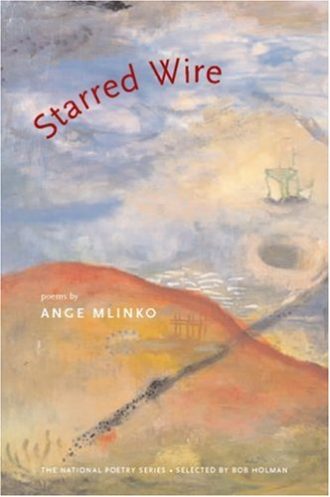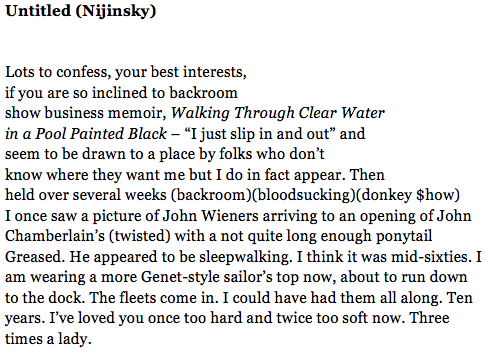It Was a Bichon Frisé's Life . . .
Sunday, September 25, 2022
Ange Mlinko
Sunday, September 11, 2022
Joe Brainard

Little-Known Facts about People
Joe Brainard

Photograph by Peter Hujar
Sex (written in 1969)
.
I like sex best when it’s fast and fun. Or slow and beautiful. Beautiful, of course can be fun too. And fun, beautiful. I like warm necks. And the smalls of backs. I’m not sure if that’s the right word: small. What I mean is the part of the back that goes in the most. Just before your bottom comes out. I like navels. I like under-arms. I don’t care for feet especially, or legs. I like faces. Eyes and lips and ears. I think that what I like most about sex is just touching. Skin is so alive. I like cold clean sheets. I like breasts and nipples. What I’m a sucker for most is a round full bottom. I really don’t like that word bottom. I think underwear is sexy. I like hair on heads, but hair on the body I can take it or leave it. Skinny builds don’t turn me on as much as normal builds. Probably because I’m skinny myself. I have a weak spot for blonds. I like to fuck sometimes but I don’t like to be fucked. What I really like is just a good plain blow-job. It’s rhythm that makes me come the best. I don’t think that, in bed, I take a masculine role or a feminine role. I guess I must be somewhere in between, or both. Sex-wise I’m not very adventurous. I am sure that there are a lot of things I like that I don’t know I like yet. I hope so. So—now you have some idea of what I like in bed.
Saturday, September 10, 2022
Amy Gerstler
Fruit Cocktail In Light Syrup
Rocket-shaped popsicles that dyed your lips blue
were popular when I was a kid. That era got labeled
"the space age" in honor of some longed-for,
supersonic, utopian future. Another food of my
youth was candy corn, mostly seen on Halloween.
With its striped triangular "kernels" made
of sugar, wax and corn syrup, candy corn
was a nostalgic treat, harkening back to days
when humans grew, rather than manufactured,
food. But what was fruit cocktail's secret
meaning? It glistened as though varnished.
Faint of taste and watery, it contained anemic
grapes, wrinkled and pale. Also deflated
maraschino cherries. Fan-shaped pineapple
chunks, and squares of bleached peach
and pear completed the scene. Fruit cocktail's
colorlessness, its lack of connection to anything
living, (like tree, seed or leaf) seemed
cautionary, sad. A bowl of soupy, faded, funeral
fruit. No more nourishing than a child's
finger painting, masquerading as happy
appetizer, fruit cocktail insisted on pretending
everything was ok. Eating it meant you embraced
tastelessness. It meant you were easily fooled.
It meant you'd pretend semblances,
no matter how pathetic, were real, and that
when things got dicey, you'd spurn the truth.
Eating fruit cocktail meant you might deny
that ghosts whirled throughout the house
and got sucked up the chimney on nights
Dad wadded old newspapers, warned you
away from the hearth, and finally lit a fire.
Dan Beachy-Quick

Responses to ----
for Stewart Breck
What is it damns the eye?—. Asymmetry
In ecological dynamics?—. What dams
The eye?—. Trends of the autumnal trees’
Later colorings, and on delay, migrations,
Or migrations, as the robins in November
Clamor in the Russian Olive, forgotten?—.
And who while crying out remembers
No one, not angels, not animals, no one
Hears that cry?—. Even the one crying
Doesn’t hear?—. A lever of infinite
Length can lift an infinite weight, or am I
Lying?—. A bee could land on a bloom and lift
The world up?—. Or a butterfly?—. Beauty
Reckons terror?—. O, bees—. O, butterfly—.
Zach Savich

If the dead have preferences they must prefer the future tense
Will you be sitting by a window in this year
As though asking affirms
What wouldn’t they affirm
Shirt hung for a curtain
Having washed it in the sink each night
My ship will be the turning one
Its sail is shining rain
Zach Savich
with Claudia Keelan
A HAPPY BOOK, OR: ORB MADE OF MANY PENNIES AND INVISIBLE TAPE
My poetics is simple: I think we should employ the full capacity (or a limited capacity, fully) of both language and the world, like a walk with a smart friend does. There's a house that looks like driftwood, a dog hitched to a clothesline. Doggy runs, so some loose plastic pins slide along the cord, like beads down an abacus. I mishear my friend: "abacus" becomes "platypus." This is all very interesting, which is the whole of my process: I try to be very interested. I have feelings and write them down. I go for walks, drink coffee, talk to friends. My experience of the world/language is not trite or nonchalant or impenetrable or random so why should my poems be? I get stuck on this: if the full capacity is possible, how can we bear anything else? I guess capacity rhymes with catastrophe, so maybe my book should be called Full Capacity Living. Of course, Full Living Capacity would be better: poetics as the revelation of sensibility via the sensations we honestly know by such instincts/ears.
Poetics: Last night watching football while we wrote unpublishable poems in the style of Basho and Sora, reading to each other from the selected poems of Merrill Gilfillan and the journals of Lewis and Clark, a friend and I invented collective nouns (a Song of Solomon of Pork Tacos, a Tolerance of Stars), looking up when we heard the hits. The color commentator seemed to be having problems at home—"Why bother going for the field goal? They'll still need another touchdown." At one point, action on the field cut him off. All he said was, "You'd need a laser." Call me: Man Narrating Football Accidentally But Revealingly Speaks of Lasers or Homelife.
I read the proofs of my book at Dunkin Donuts. I was surprised by how happy the poems seemed. I had thought they held only panic, desperation, folly. I had no idea I had written a happy book.
A teacher said: you need to decide if you think the world is meaningful or not. And then, whether it is or not, if art can be. And if art can be, shouldn't it?
Poetry as cosmology, as echolocation, as what you want to read when you are sick of TV (I can only read Shakespeare when I am sick of TV). As faith in empiricism; because we experience language, even the best abstractions are empirical. Not can poetry matter but poetry is matter.
Because maybe we've been wrong about it all—how wonderful! I write now with apples outside, dusk. I want to say I am looking through the peel of a hollowed apple. I think of an orb made of pennies stuck together with invisible tape. I want to write books that will thrill you in a used book store in ten years.
Zach Savich

In the painting by Degas, the dancer is not
on a cell phone, but holding her head. I left the museum.
Ann was sick. There were shoes all along the bridge,
and the senseless branching of ambulance sirens: one going west
on Henderson, another east. Technicolor weather. A man
in white coveralls was carrying a traffic cone
over his head, he was an Elmer's glue tube.
In the painting of terns on rigging,
when you remove the terns from the rigging, there is
only canvas behind, not sky. Ann vomited
off the bridge, the way a single page can slide
from its binding. It became harder for me to read on
in the biography, knowing there is no part of the body
a bullet hasn't pierced. Piercework. I worked in a chowder house
and got to bring home all the innards we extracted
from bread bowls. I had a friend who was a trumpet player
who'd come home from a show and, sleepless, play more.
His apartment was so small, his trumpet
stuck into the alley. Ann slept for two or three months.
Snow like tissue after tissue pulled from a box.
I drove Ann to the hospital. On the first day of spring I saw
the Elmer's man standing on the traffic cone point
of his head at a rave. Trees blossomed outside the hospital
the way champagne bottles christen ships. I wheeled Ann
to the museum and we watched the Indian out front
raise his arms to weather. I talked about the Caravaggios
facing each other in Santa Maria del Popolo, the pose
of Paul, receiving, so close to the pose of Peter,
received; saints open their arms. Pieced through.
My friend the trumpet player emptied his spit valve onto pigeons.
He watched a woman climb onto her fire escape, nude,
her husband cursing from the window. I gave up on
the biography. I left the rave. Ann held her head.
The ambulances were just roaming, moving things around.
I put on some shoes I found on the bridge, then left the bridge.
Ann bruised. Her mom showed up. It was July.
Zach Savich

[Our letters were like inventing the steam engine]
Our letters were like inventing the steam engine
So one morning in a derelict station
Someone could open a café
To sidle is a motion bringing one closer regardless
Letters like strawberries on a plain cloth
I stay on the smaller balcony
Pull the curtain around the gardenia
There’s a lemon under that bowl
[Bicycle in vines]
Bicycle in vines
Child singing with mouth against the window
A way of seeing out
Shh somebody says, so she begins to whisper-sing
How does it alter the view
If I eat everything walking, can I make the river
One with small pockets sewn on an orange skirt
She and I’ll be at the river
Friday, September 9, 2022
Tony Tost
from 1001 Sentences
201-210
Every successful sentence lessens one’s reliance on memory.
What we do we do because of what we didn’t.
Erotic silence.
Unimportant themes are thrust forward to protect the more important ones.
The sun is also in the wrong.
I am assured that this poem is actually myself or at least that part of me which demands always to be before the camera.
Sometimes freedom is found in the teeth of the ladder.
My career is distinguished by how shamelessly I judge my enemy (the reader).
I see everything in you.
The center of all ignorance is found to pulsate a few miles behind your eyes.
Sunday, September 4, 2022
Cedar Sigo

Taken Care Of
I come from Inuit oil money,
From instruments of chance and divination.
The most loose, shut in, wavering mind,
Recording my day with recitations, antennae,
Narration and figure, my phone might die. I'm walking dirty.
Shop and mob cops, not to touch my mother's breast
Or the queen's royal crown signature
Izzy Juju—hijacked, forsaking all others.
The untamed scotch is mine. It cost the picture a fortune
To say nothing of my turban, costume copies
Of topaz bracelets, the umpteenth translation.
Did you ever know Micah, Gay Sunshine, Grace Cathedral, Coconut?
I went from heels at Barneys to the depths of the bins.
Who could be like dropping in? I'll fold both my hands
In gloves and wait, Hope Diamond peeking out.
Cedar Sigo

From
Like Someone in Love: Late Night Thoughts for David Meltzer
We never studied together formally, looking back now, that is one of the few regrets of my life. I would always hand off extra copies of my early books to Micah Ballard each inscribed in advance to Meltzer. Of all of the ‘Bolinas’ poets that moved in and out of New College in the early 2000s David seemed to me the most ageless, possessed of a glimmering youth that went beyond body, a purely physic space. How remarkable that he would meet us on equal ground time and time again, even after years of encountering thirsty poets.
Micah and I once hung a tiny show of David’s collages at the Lew Gallery, which doubled as Micah’s office just off of Valencia St. We would unscrew the office door from its hinges to indicate when this transformation had occurred. The door itself was a wonderful welcoming work. I remember at David’s opening that we smoked hash while sliding further down upon the cool tile floors and through it all David’s voice right there, coaching us while also allowing for bliss.
I always loved that one of his later pamphlets was titled Stuntman. He had the best way of kidding himself, somewhat ruthlessly but always bringing down the house around him. He would give almost anything for a laugh, an easy way out. Someone needs to put his chronology down for poets of the future to study and enjoy. His story moves from NY to LA to SF to Bolinas to England to Richmond, then of course each individual collection of poems has a bundle of stories attached. He was also a great editor of anthologies on Birth, Death, Jazz, The Kabbalah. I am also dying to get my hands on more issues of Tree, his alchemical magazine and press. This is only a glossing, a smash and grab from the several arcs within his story.
Cedar Sigo

Guns of the Trees was written by moving backwards through the table of contents of my most recent book and recording what I could remember about the composition of each of the poems.
Guns of the Trees
A set of notes detailing the caves of an impeccable gentleman, a minotaur poet. The most devastating silence of the first ten books. A fantasy of Philip Lamantia as an action figure stripped naked with special audible scream switch buttons. Re-imagining Grace Cathedral as the great symphonic hall of coconuts, Oh the book is resting complete in a chinatown basement.
A poem I puked drying out at a hot springs in love winding through the dry hills of neem leaves, an exaggeration of music I thought younger poets admired. The trimmings I knew I could press new meaning in between. I was endlessly in the mood and working this lace front, that words as force walk the earth. I tried to show a sailor bounding through his life in silhouette.
I’d rather live on my own with my magic lantern. I’m sick of public schools that reek of church. Drink. Fuck. Breed. Light the top shelf. Pressed green woods with light standing even straighter. He is standing on my eyelids and his hair is crossed with mine. Giving flat girders to the dream poem. Its all about the filthy paint of a room that empties out at night. Scotch tape wrapped words
guarding fissures of light. Brakhage and Bob Dylan jokes I wrote exclusively for money for The Recluse. Fished out from the threshing odds and ends. A song I thought was lost, the lines were nothing on there own. A diorama whose language goes ahead to shatter the glass. Billion dollar kick flips in your honor. A poem named for a race horse named for weed.
A perfect approximation of the opening smile. His poetry would make great bronzed inuit blues. My feast was in the easy blood that flowed. A dark skittering travelogue I almost didn’t type up, the most break up like drivel. Number thirty five with lines from two sonnet cycles. Translations via Telephone, such civil war is in my love and hate. Lines in which I know the way
the music lays. I back away from the wall. I wanted the deepest impression, a line torn from its plush root. Occupy damaged or inspired, they are reverse black nazis in unfunded wheelchairs. I can’t keep up. Wiping black snot onto white sleeves. Another last ditch genius fuck. The morning after a long night hot in Fort Green. Back on the west coast writing it. Desk faces wall. A chinese distillation to
illustrate the offing, panels for the walls of heaven really concealing its canals, haranguing the provencal into a blues again. It closes too tightly. Trample it down to its esteemed place in language arts. In homage to his wealth, and willingness to go down on his masters. A matter of course under Bismark bridges. Its more a leaving off of the grime sometimes, entered cities of boiling red dust.
Renee Angle
Renee's selections From the Stacks are:
The Memoirs of Jonbenet by Kathy Acker
Head Off & Split by Nikky Finney
Against the Current by Tedi López Mills (Translated by Wendy Burk)
Black Movie by Danez Smith
Notes on the Assemblage by Juan Felipe Herrera
Life Studies by Robert Lowell
ARK by Ronald Johnson
A Year From Monday by John Cage
Breathturn Into Timestead: The Collected Later Poetry by Paul Clean (Translated by Pierre Joris)
Robert Duncan (The Ambassador From Venus): A Biography by Lisa Jarnot
Stoplight
Red drives yellow tread green years he walks like he swims: with his big hands out sculling across my shoulders, "these," he |
Saturday, September 3, 2022
Cedar Sigo

All This Time
for Ed Berrigan
Wake up
Feel around for shoes
Sit warm at the wooden table
Write a tower of praises (oblations?)
in cold steel
type
in praise of Ed Berrigan Industries, its massive
sign tilting over
17 Reasons Why
(Now taking off!)
the crypto
liquid metal
skeleton
still shows under
patches of
torn
ankylosaurus
stickers
We once got trapped in Mark’s painted
side shack
illuminations
(Back when Jack held the most titles….
I feel much tractor about things now
(and Selected Poem)
I feel long house
needles point
Icarus shoes
Sloppily painted plates
stapled into a set
A coliseum for playing out music and
poetry’s distortions. A kind of signing off repeatedly,
All this time.
Robert Hass
The Failure of Buffalo to Levitate Millard Fillmore died here. His round body is weighted by marble angels. He lies among the great orator...

